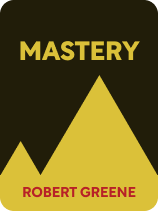

This article is an excerpt from the Shortform book guide to "Mastery" by Robert Greene. Shortform has the world's best summaries and analyses of books you should be reading.
Like this article? Sign up for a free trial here.
Have you been slowed down by discouragement, perfectionism, or even an injury? What does it mean to “compete with spirit”?
The path of mastery is not always smooth. As you pursue a discipline of any kind, you’re bound to run into obstacles, find yourself sidelined, or even get knocked off your feet. Educator George Leonard describes how you can press on in strength as you walk the lifelong path of the master.
Read more for Leonard’s encouraging advice on how to push through when the going gets tough.
How to Push Through
Once you’ve built your energy and understood how to make lasting change, you can prepare for the common obstacles you’ll face along the way. Leonard explains how to push through when these come at you.
When your pursuit of mastery and your livelihood don’t match up, you’ll need to make space in your life for both, Leonard says. Be sure you have enough time by planning out the hours you’ll need for each and sticking to a disciplined work/practice schedule.
(Shortform note: One technique you can use to balance mastery and livelihood is time blocking, a powerful productivity technique that helps you optimize your efforts within set stretches of time. It involves defining set times in your day that you’ll dedicate to mastery practice. For example, you could block out one hour every morning before work or two hours every Saturday afternoon. Then, show up consistently to those times so that you develop the habit of pursuing mastery in a focused manner. With regular time blocking, you can steadily carve out space for mastery while also managing your career.)
Leonard also recommends that, when competition looms large—for instance, if you’re mastering a skill like chess or karate—avoid being over- or under-competitive. In other words, remember that results aren’t the point, but don’t phone it in either—competing with spirit will help you understand how far you’ve come as well as how much more you have to learn.
(Shortform note: In The Art of Learning Waitzkin suggests that you use competition, whether you win or lose, as a way to keep your ego in check. A proper competitor, he argues, needs to be confident enough but not overconfident. If you have too little confidence, you simply won’t perform; and if you have too much, you can undermine your success by underestimating your opponents.)
Leonard says that, when unproductive personality traits arise—such as laziness, ego, overseriousness, or perfectionism—try to let go and remember the humor in all things. Take heart, find opportunities to laugh and relax, and avoid becoming too self-important.
(Shortform note: As explained earlier, any unproductive personality traits you encounter might be aspects of your shadow that you’ve yet to address. And you might consider that something like laziness isn’t necessarily a “bad” thing that you need to eliminate from your life, but rather a natural, animal trait that you could benefit from accepting. If you take Jung’s assertion that we aren’t all so morally pure, then it follows that you could learn to allow yourself a bit of laziness or perfectionism—so long as it doesn’t throw you off course.)
Finally, when you get injured, which Leonard says is likely to happen in most physical disciplines, give yourself the grace to rest and heal. To prevent injuries, remember to balance hard work with an awareness of your body’s limits and pain points.
(Shortform note: Waitzkin also suggests in The Art of Learning that when you’re injured, you have the opportunity to practice inner work. In other words, you can use visualization, meditation, breathwork, and similar techniques to target and refine the inner or psychological aspects of your skill, such as staying calm under pressure.)

———End of Preview———
Like what you just read? Read the rest of the world's best book summary and analysis of Robert Greene's "Mastery" at Shortform.
Here's what you'll find in our full Mastery summary:
- How to walk the path of the master by being disciplined in your skill or art
- Why mastery isn't an end goal, but rather a continual process of learning
- Why the master's path is the only guaranteed way to live a fulfilling life






